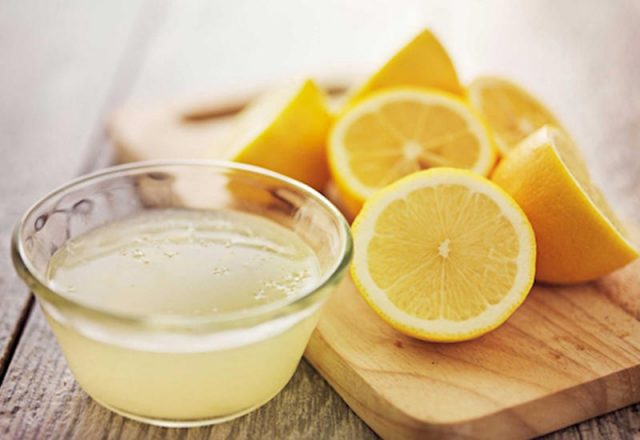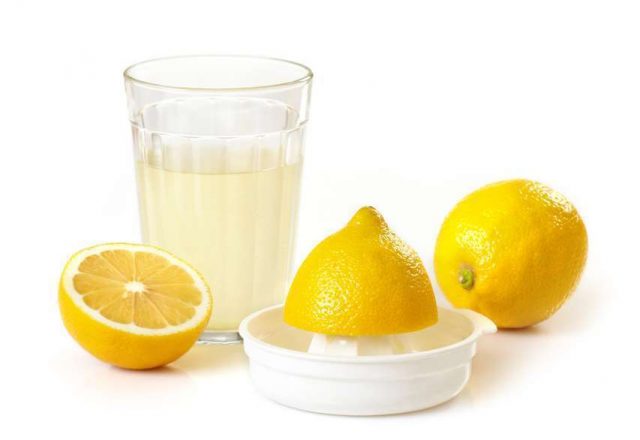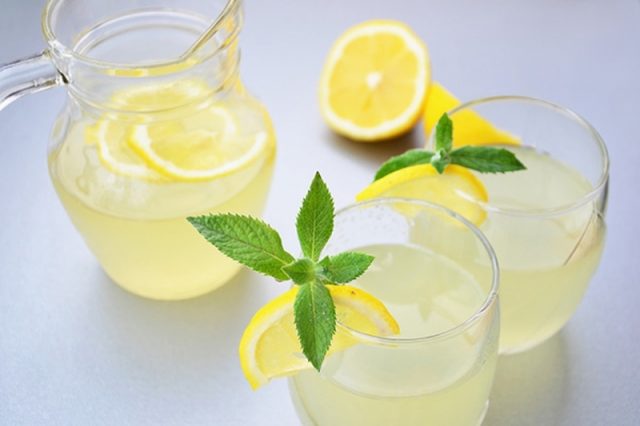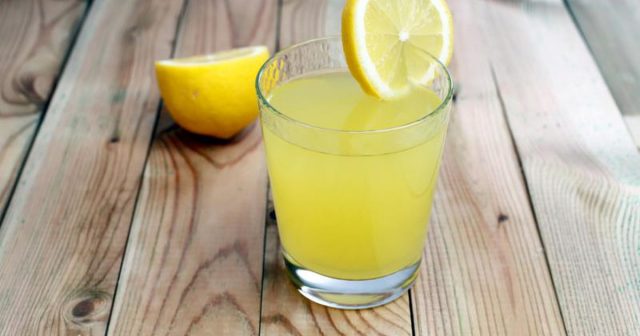Content
The benefits of fresh citrus juices have been known for a long time. Due to the absence of heat treatment, the product retains useful substances and vitamins. Lemon juice is one of the leaders in terms of the number of elements beneficial to human health.
The composition and value of lemon juice
Fresh lemon is a source of a huge amount of trace elements. It contains a large amount of B vitamins, vitamin P, vitamin E, and beta-carotene. In addition, 100 g of the product contains almost half the daily value of vitamin C.
Calorie content per 100 g is only 22 kcal. The energy value of the product is as follows:
- proteins - 0.35 g;
- fats - 0.24 g;
- carbohydrates - 6.9 g;
- water - 92.31 g.
Mineral composition is a whole range of chemical compounds. Lemons are rich in calcium, iron, magnesium, phosphorus, sodium and potassium. They also contain rare elements such as selenium, zinc, manganese and copper.
Why lemon juice is good for you
The benefits of drinking freshly squeezed juice are undeniable. It is most widely used in cooking as an addition to various dishes or drinks. Due to its composition, it is successfully used not only as a food product, but also in various cosmetic and even medicines.
Ascorbic acid, found in large quantities in lemon, is an excellent stimulant of the immune system. During the off-season, drinking it regularly can help reduce the risk of colds and flu.
In addition, regular consumption of fresh lemon juice helps to normalize blood sugar and cholesterol levels. Lemon is an excellent source of energy. It perfectly energizes the body, exerting a tonic effect on it.
The drink is very useful for depression and sleep disorders. The potassium in lemon is an excellent remedy for anxiety and low mood. Also, such a drink will help restore intestinal function due to the content of a large amount of antioxidants.
Can i drink lemon juice on an empty stomach?
Upon awakening, body tissues are dehydrated and need nutrition. Adding a few drops of fresh lemon juice to a glass of water will restore the acid-base balance. In addition, such lemon juice in the morning allows you to start the kidneys as efficiently as possible, helping to remove harmful toxins and toxins from the body.
Drinking lemon juice on an empty stomach can also harm your body. Due to the large amount of acid, an excessive amount of such a drink in the morning can destroy tooth enamel, therefore it is recommended to drink it through a straw. You should also be careful or completely refrain from taking people with diseases of the digestive system - gastritis, ulcers and pancreatitis.
The benefits of lemon juice in dietetics
The first rule of dietetics is to bring the digestive system back to normal.Nutritionists use the beneficial properties of lemon juice to improve metabolism and overall rejuvenation of the body. The vitamins and chemical compounds contained in it strengthen the digestive system and the gallbladder, eliminate excess toxins.
The composition of lemon juice contains pectin, a polysaccharide responsible for carbohydrate metabolism. Its main function is to block the possibility of instant absorption of fast carbohydrates by the body. Even absorption of carbohydrates is not only the basis for proper nutrition, but also helps maintain normal blood sugar levels.
The use of the beneficial properties of juice to combat obesity is based on the saturation of the body with nutrients. In addition, when it gets into the mouth or on the stomach wall, the acid stimulates the receptors responsible for burning excess carbohydrates. The body begins to process their excess.
Why lemon juice is good for your skin
The beneficial effects of lemon on the skin have been known for a long time. For its correct use, it is necessary to slightly moisten a sponge or a sponge in it, and then apply to the skin of the face, avoiding contact with the eyes. The substances contained in its juice allow you to achieve an even skin tone, as well as give your face a natural glow.
In addition, fresh juice can fight problem areas on the skin. It is great for smoothing out wrinkles, reducing freckles and shading age spots. The body will receive the greatest benefit when combining cosmetic procedures with the correct diet, which includes fresh lemon juice.
Benefits for hair
Fresh lemon has a beneficial effect on the hair and scalp. Compared to other citrus fruits, lemon contains the highest amount of vitamin P - rutin. Combined with vitamin C, it has a complex effect on hair and scalp restoration. The use of lemon juice is beneficial in the following areas:
- getting rid of itching, dandruff and seborrhea;
- normalization of scalp oiliness;
- reducing the intensity of hair loss;
- increased hair growth;
- strengthening the roots and ends of the hair.
The most popular way to use the juice is with hair masks. In order to prepare a nutritious mask, you must mix in a 1: 1: 1 ratio of lemon juice, olive oil and fat milk. The resulting mixture is applied to the hair for 20 minutes, then washed off with shampoo. The benefits of such a mask are colossal - the hair ceases to be dry and brittle, acquires a natural shine.
The benefits of lemon juice for oncology: myth or reality
According to the latest research, lemon extract has miraculous powers against cancer cells. It destroys them without harming healthy tissues. Compared to chemotherapy, such treatment does not harm the body, and its benefits are several times superior in some respects. Citrus is actively used in addition to the treatment of breast, lung or rectal cancer.
According to the results of an experiment carried out by European scientists on humans, the real effectiveness of the lemon juice treatment method has been proven. The control group of patients had to eat 150 g of fresh lemon 4 times a week or drink an equivalent amount of juice. The test results showed that the disease completely stopped progressing. In addition, the general condition and well-being of the test subjects improved significantly.
Further research in this area showed that the consumption of 75 g of citrus per day can completely stop the development of the disease. Unfortunately, lemon only blocks the growth of cancer cells, but cannot completely fight the disease. Its regular use in conjunction with competent treatment helps to improve the general condition of patients.
How to make lemon juice at home
There are a few simple rules to follow to make the perfect lemon juice at home.First you need to pick the right fruit. Lemon should not be too large - such fruits do not contain a lot of juice, and also have a very thick rind. It is worth giving preference to fruits of medium and small size. The ideal option would be fruits with a thin, almost smooth skin - they are juicy and easy to process.
First you need to prepare the fruit. They should be rinsed in water with the addition of baking soda - this will additionally disinfect them in order to avoid bacteria and yeast from the rind getting into the finished juice. Further, citrus fruits should be doused with boiling water - this will soften them and facilitate the further process.
How to juice lemons
The process of making lemon juice is simple, but the variety of ways to get it is surprising. There are both manual methods and mechanical ones, where the use of special devices is implied. The most popular ways to get a finished product are:
- electric juicer;
- hand blender, food processor or meat grinder;
- manual citrus press;
- manual squeezing.
Often household appliances that seem to be unsuitable for this are used to obtain juice. For example, using an electric meat grinder allows you to get a finished product of excellent quality. For this, the fruit is chopped into minced meat, after which the resulting mixture is squeezed through cheesecloth. You can use a blender or food processor in the same way - the method is simple and very effective.
Using a juicer
Modern juicers are high-tech and perfectly calibrated devices. Modern machines are expensive, but compared to the manual method of juicing, they allow you to get the perfect product without unnecessary labor. In addition, when using an electric juicer, the entire cake will be collected in a separate chamber, and the presence of several filters will allow you to get the purest product that does not require additional cleaning.
Prepare juice according to the manufacturer's instructions. Traditionally, lemons are washed and then cut into 4 pieces. Next, the citrus fruits are placed in the juicer bowl. The resulting juice will be poured from a separate tube directly into the cup. Convenient for making large quantities of a product.
Without juicer
If there is no special juicer, then manual methods can be dispensed with. Such methods are more time consuming and more expensive than automatic devices. The most traditional method is to simply squeeze the juice out by hand. To do this, cut the washed lemon into 4 slices. Each of the lobules is squeezed, thereby giving the juice into the cup. The resulting product, if desired, can be further filtered.
Another option for juicing without the use of special equipment is a manual citrus juicer. Such a thing is sold in all stores with kitchen utensils. The lemon is cut in half, after which its half is squeezed out on a special ledge. This method is quite convenient and allows you to quickly get a mug of drink.
How to make lemon juice
In summer, there is nothing like a refreshing cocktail. Homemade lemon fresh juice allows you to combine all the benefits of lemon juice, supplemented with other ingredients. The classic recipe for making fresh juice is a combination of freshly squeezed juice, water and sugar. To prepare one serving of the drink you will need:
- 1 lemon;
- 150 ml of water;
- 3 teaspoons of sugar;
- ice.
First, squeeze the juice, filter it and pour it into a mixing cup for cocktails. Water is poured there, sugar is added and mixed well. The resulting cocktail is poured into a glass half filled with ice. A refreshing lemon juice is ready.
There are many recipes for lemon juice. Many people add various fruits to it - oranges, kiwi and pineapples. You can also use honey, ginger and various herbs and spices: thyme, anise, star anise and others. The use of additional ingredients allows you to get the perfect multi-faceted drink that perfectly refreshes, quenches thirst and benefits the body.
How to drink lemon juice properly
Correct use of any product is a guarantee of health and longevity. Lemon juice is no exception to this rule. For example, people who decide to lose weight are advised to drink a teaspoon of concentrated juice before each meal. This approach will activate the stomach and prepare it for the correct digestion of future food. In this case, a situation occurs when the liquid entering the stomach envelops its walls. The brain receives a signal to fill the stomach, thereby reducing appetite and, as a result, the size of the future portion.
Do not forget about the breaks between meals. Nutritionists advise to eat one fruit at this time. Of course, eating lemon will be problematic, but a portion of fresh juice helps not only to satisfy a slight hunger, but also to dissolve extra pounds.
To strengthen the immune system, various fresh juices based on lemon juice are recommended. In such cases, in addition to a huge dose of stimulating vitamin C, the body receives other useful substances. If you add a teaspoon of grated ginger to lemon fresh juice, you get a wonderful tonic drink. In addition, for immunity, there is a huge amount of lemon juice infusions. 100 g of lemon juice and ginseng, aged in a liter of vodka for a month, is an excellent balm that stimulates the immune system.
The use of lemon juice can be an excellent medicine against various diseases. For example, the benefits of lemon in the treatment of kidney disease have long been known. The juice, entering the kidneys, changes the acid-base balance, helping to dissolve kidney stones.
How to store lemon juice
Citric acid is an excellent natural preservative - it slows down the growth of bacteria. Many people believe that its huge amount allows you to avoid damage to the juice for a long time. In fact, this is not so - a freshly prepared product under room conditions will deteriorate within a few hours. The reason for this may be the ingress of yeast, mold or various pathogenic formations into it.
You can extend the shelf life of the juice in the refrigerator. Subject to the temperature regime from 0 to 4 degrees, it can be stored for up to three days. The best way to keep food at home is to freeze it. Frozen lemon juice cubes can last up to three months in the fridge freezer.
Limitations and contraindications
Despite all the benefits of lemon juice, it can do real harm to some groups of people. First of all, we are talking about people prone to allergic reactions. They should avoid both pure juice and dishes that contain this component. Among other people for whom lemon is contraindicated, it is customary to distinguish the following categories:
- people with diseases of the gastrointestinal tract: the acid contained in citrus can harm the mucous membranes of the stomach and intestines; during exacerbations, it is necessary to completely refrain from using it;
- persons suffering from dental diseases, caries and pulpitis: in such cases, the ingress of juice on bare nerves leads to severe pain;
- nursing mothers: excessive use of this strong allergen can lead to health problems for the unborn child;
- children under 3 years of age: a sensitive child's body is unable to completely process lemon juice, often its use causes rashes and diathesis in young children.
Particular attention should be paid to the possibility of eating lemon juice for people with high and unstable blood pressure. Drinking lemon juice at low or high blood pressure can be beneficial in improving your overall well-being.
Conclusion
Lemon juice is a storehouse of healthy vitamins and minerals. It is used in cosmetology, dietetics and even pharmaceuticals. Regular consumption of lemon will improve the general condition of the body, strengthen immunity and overcome seasonal colds.












